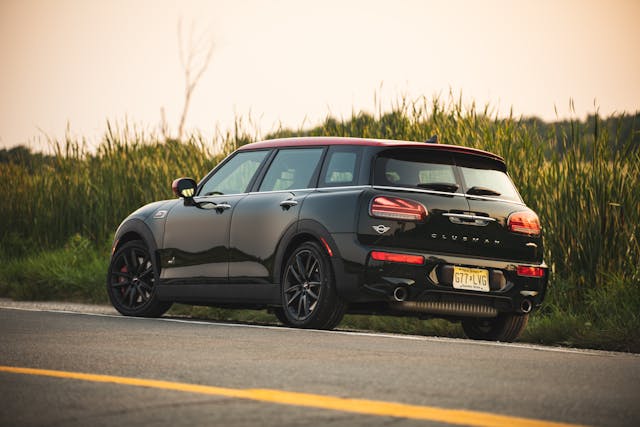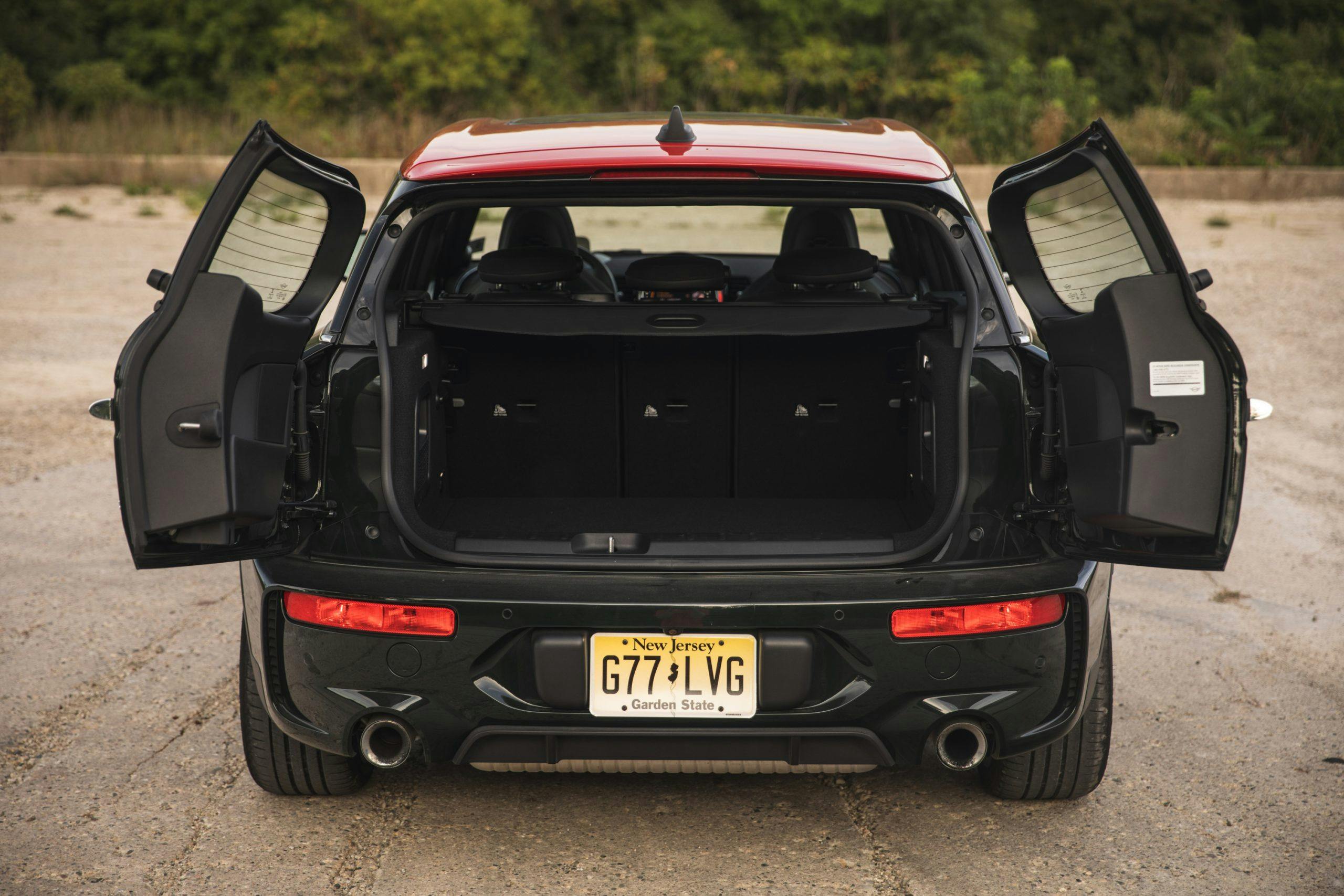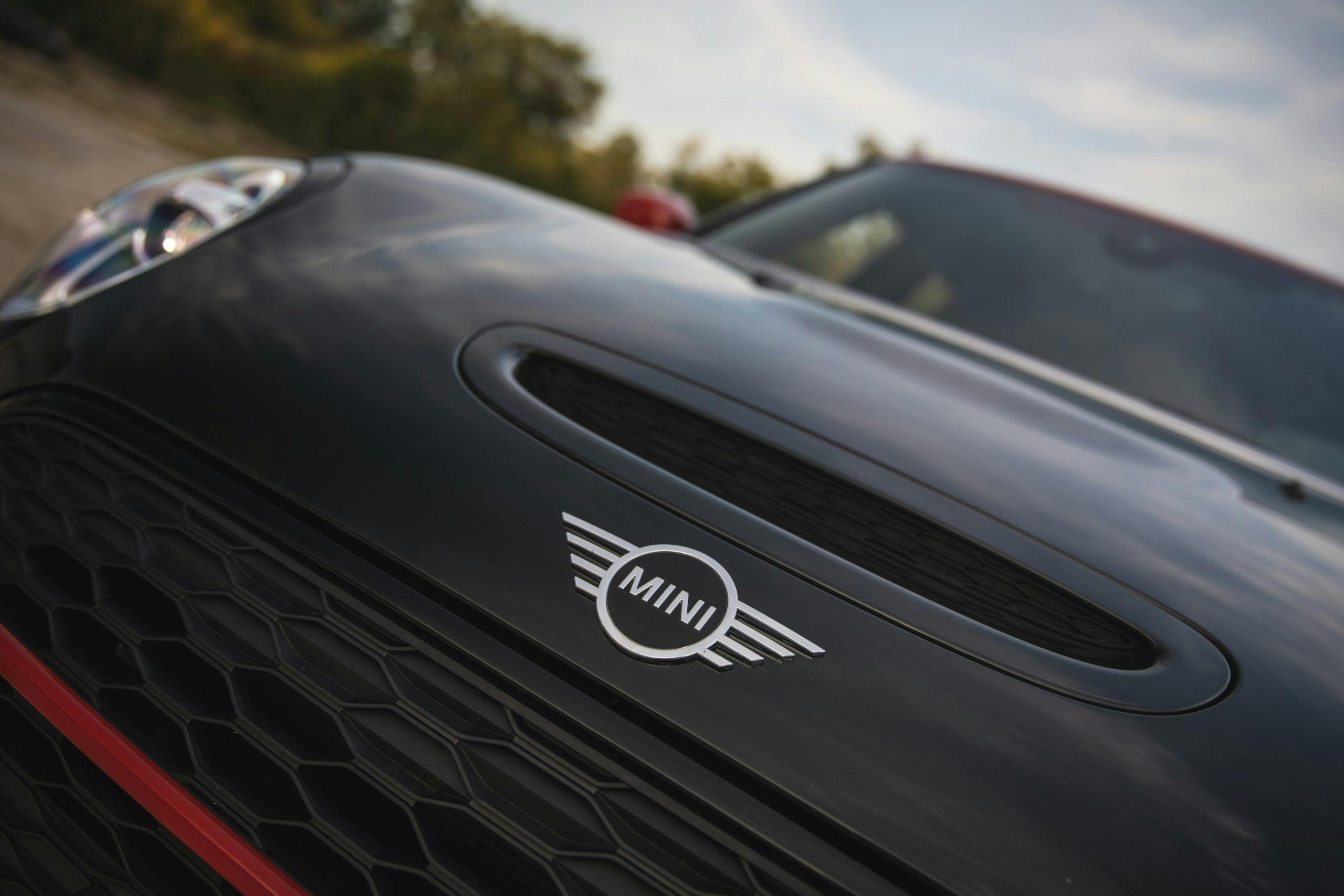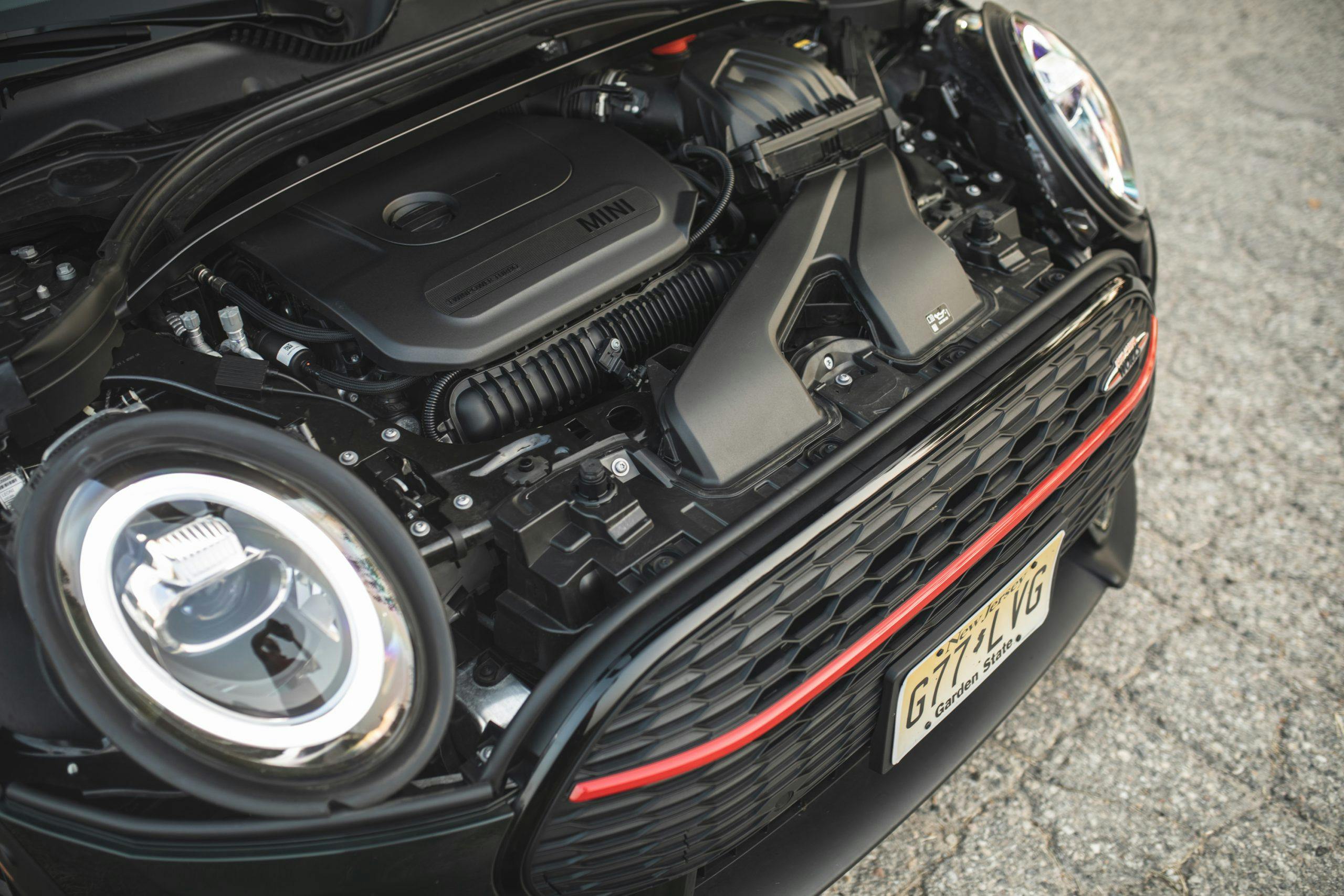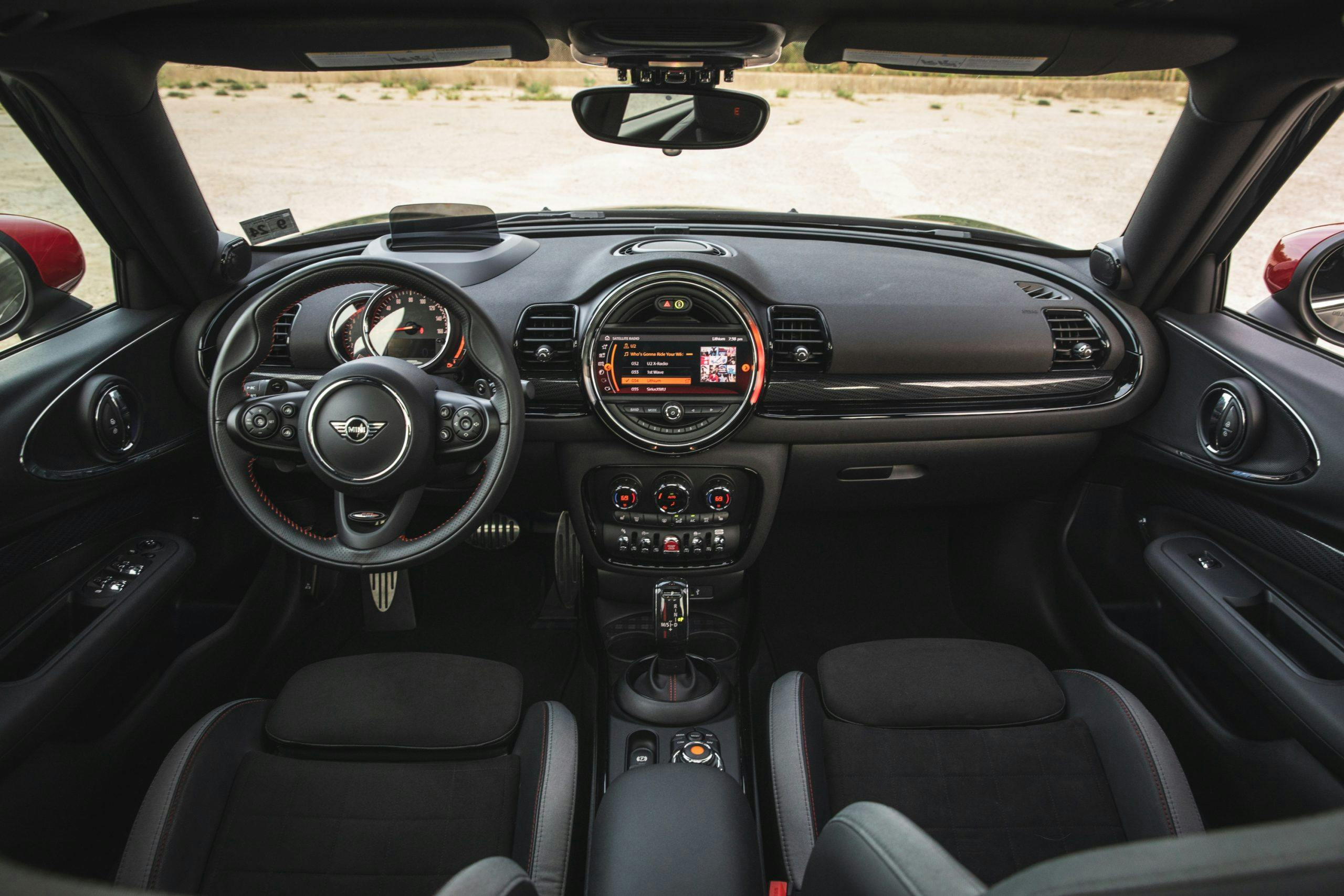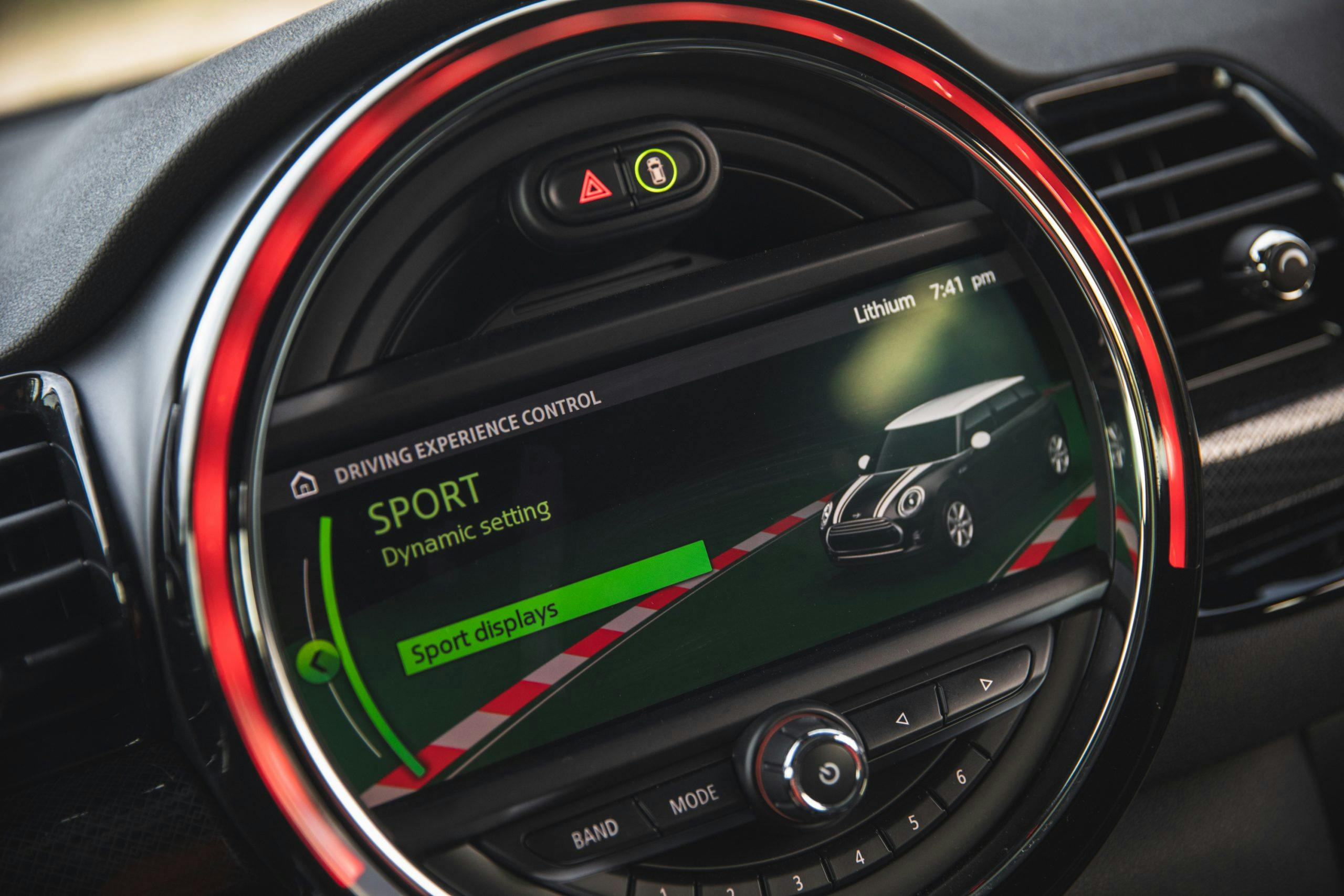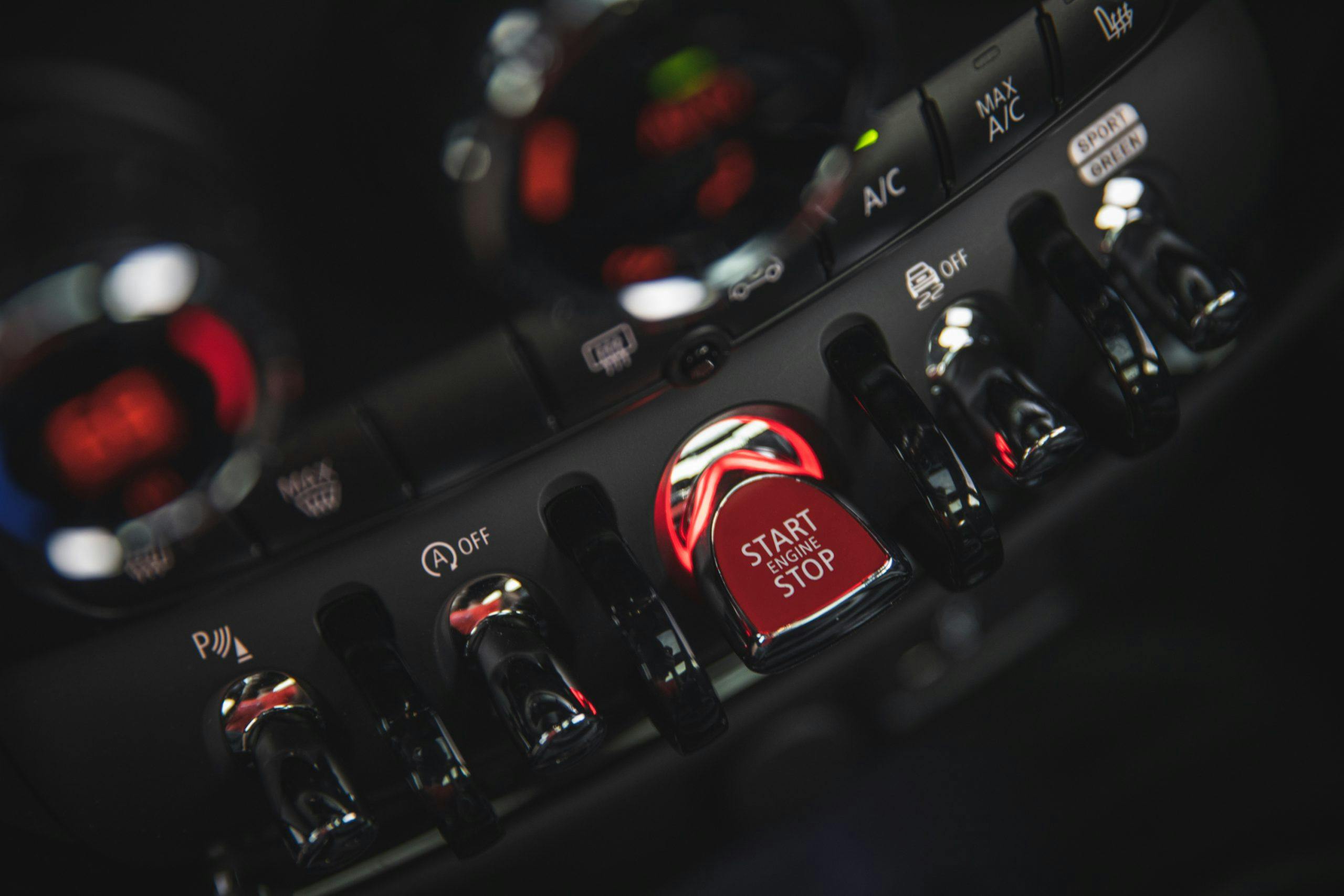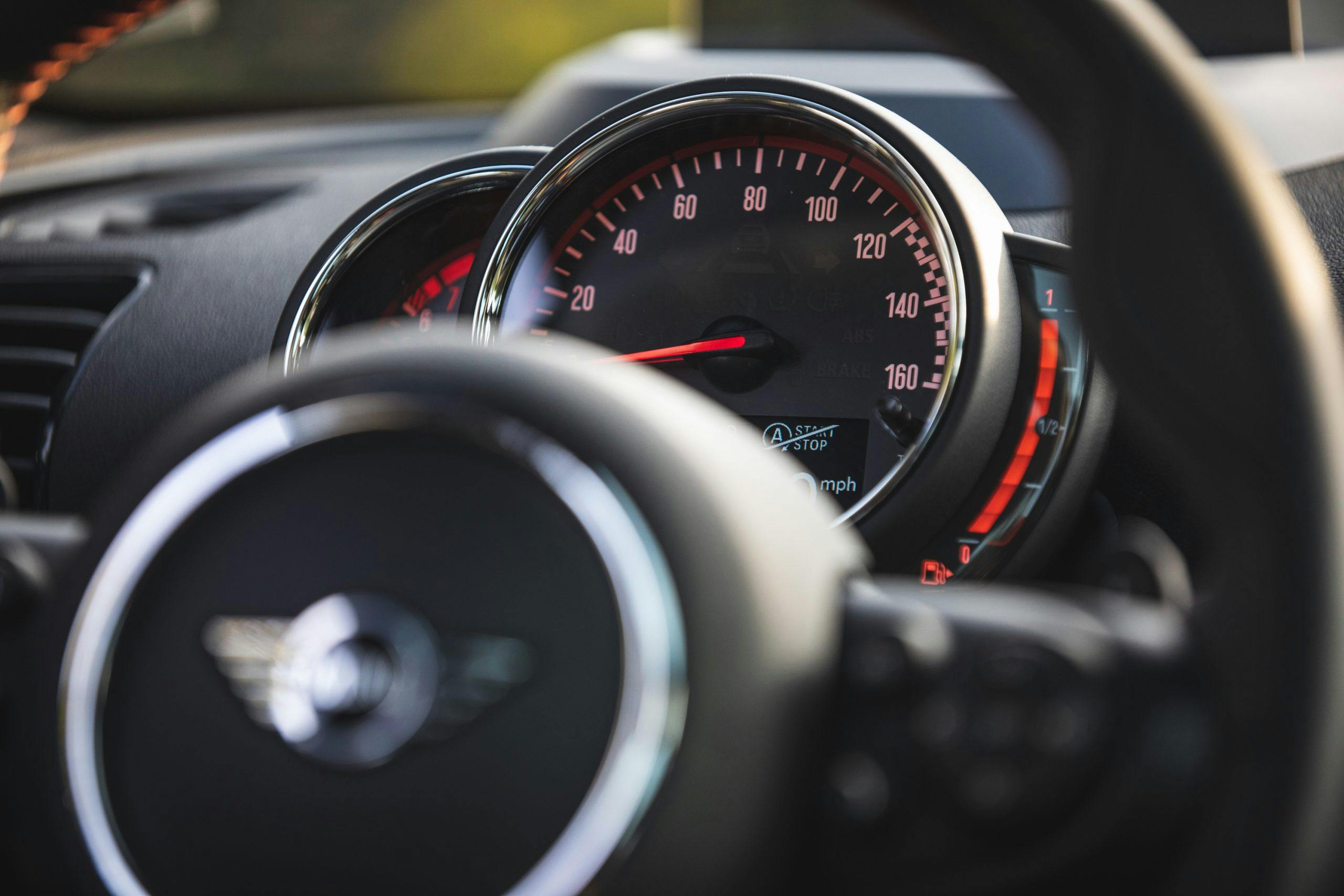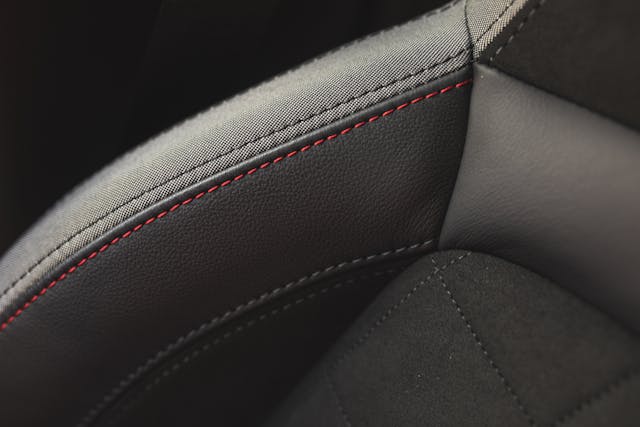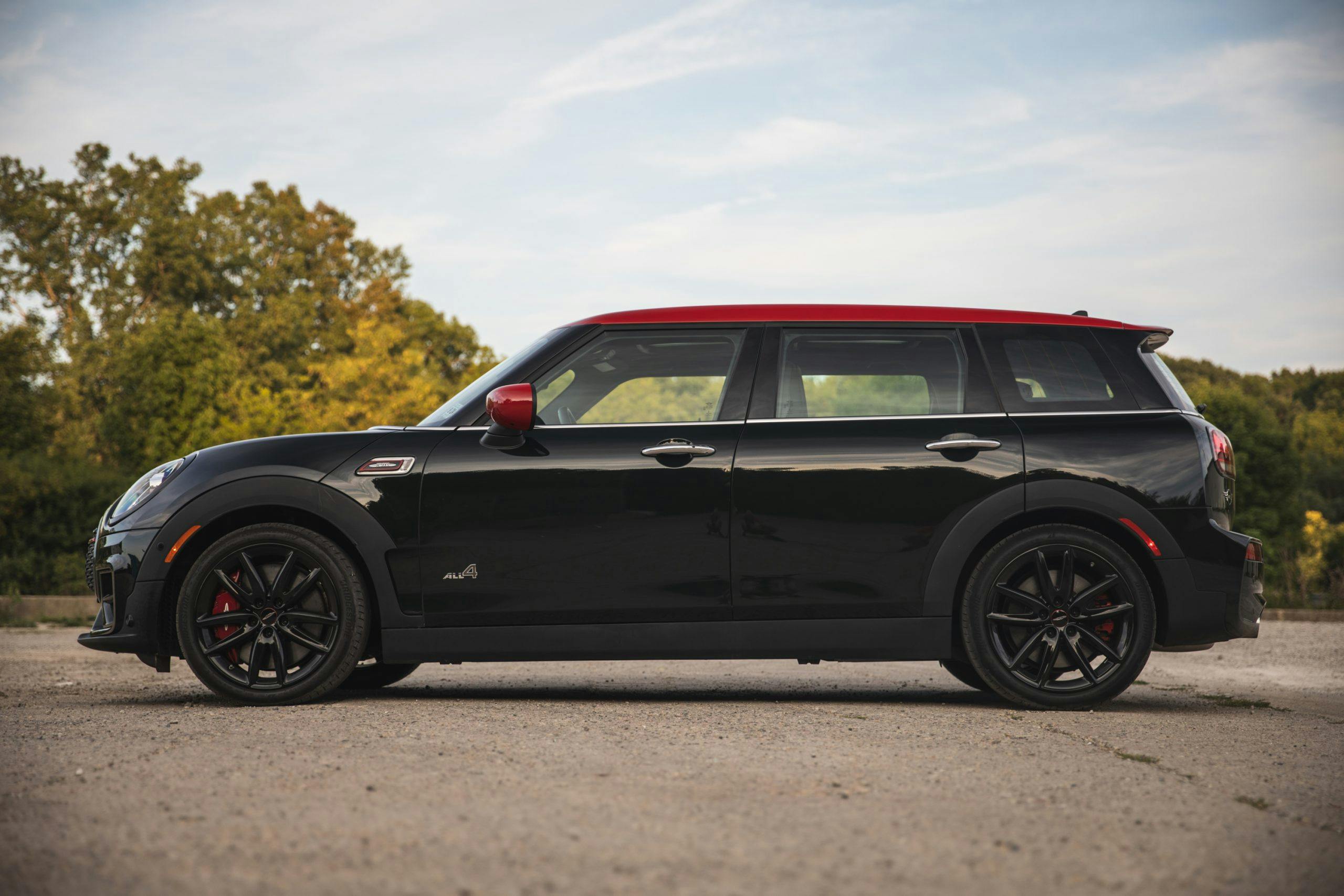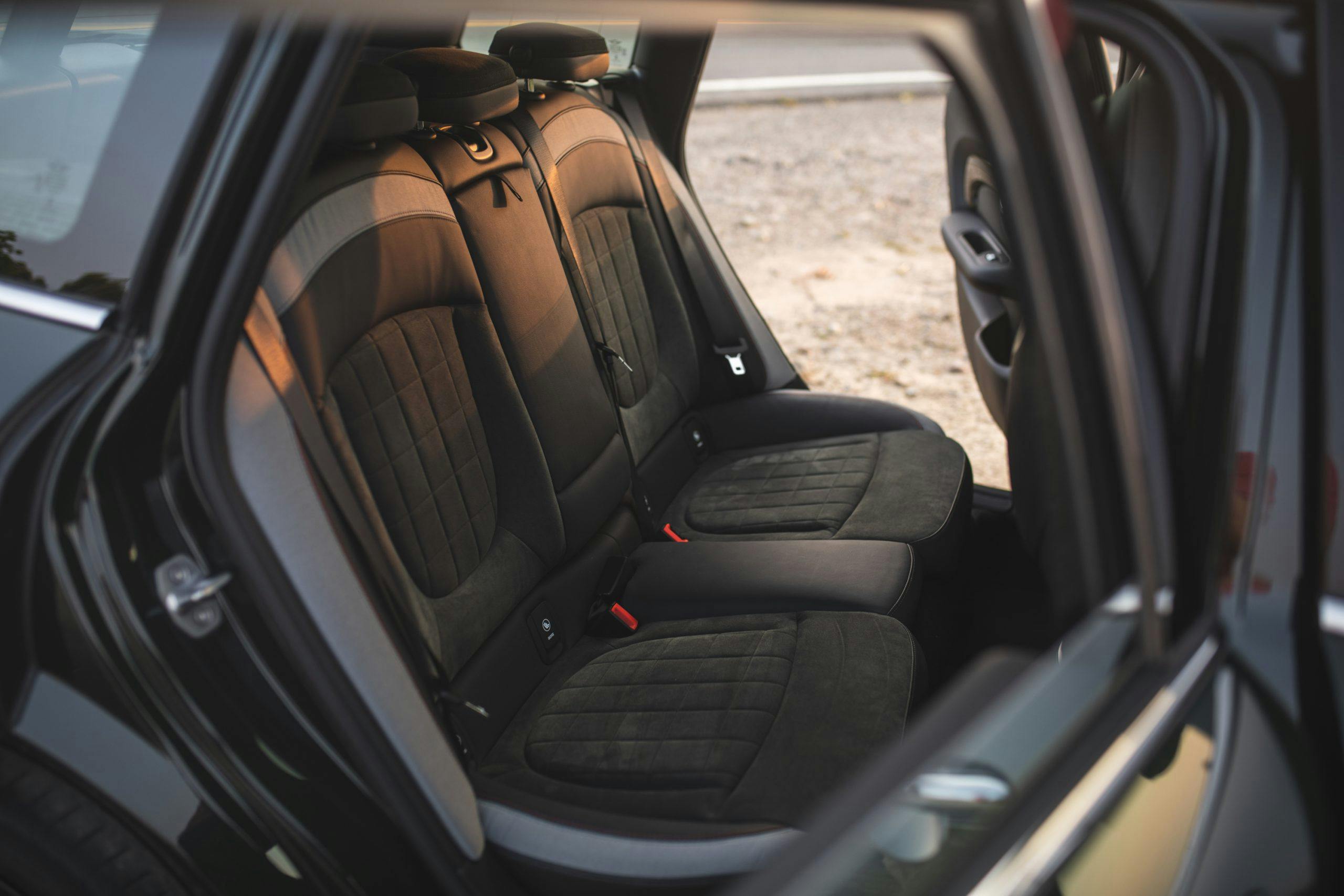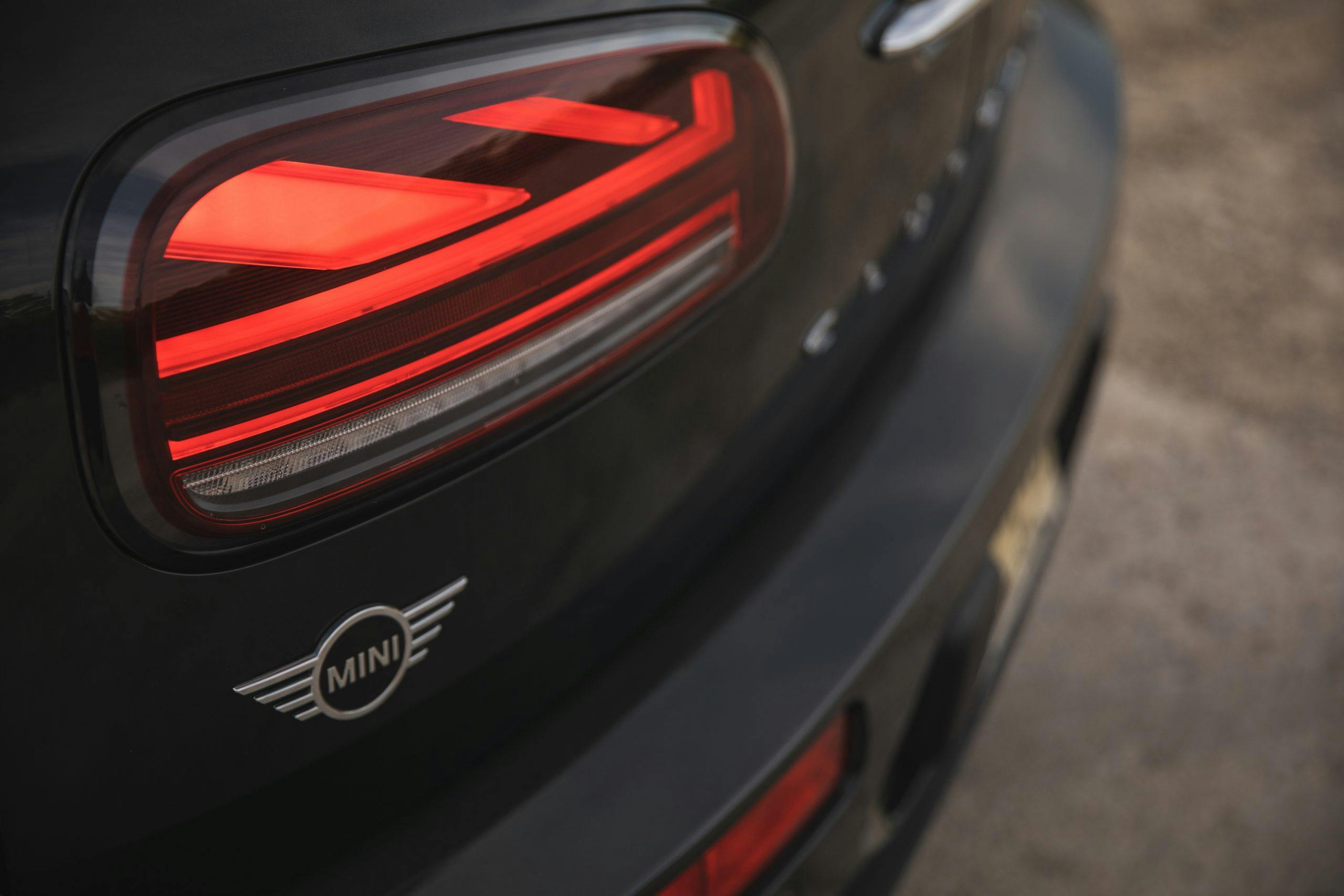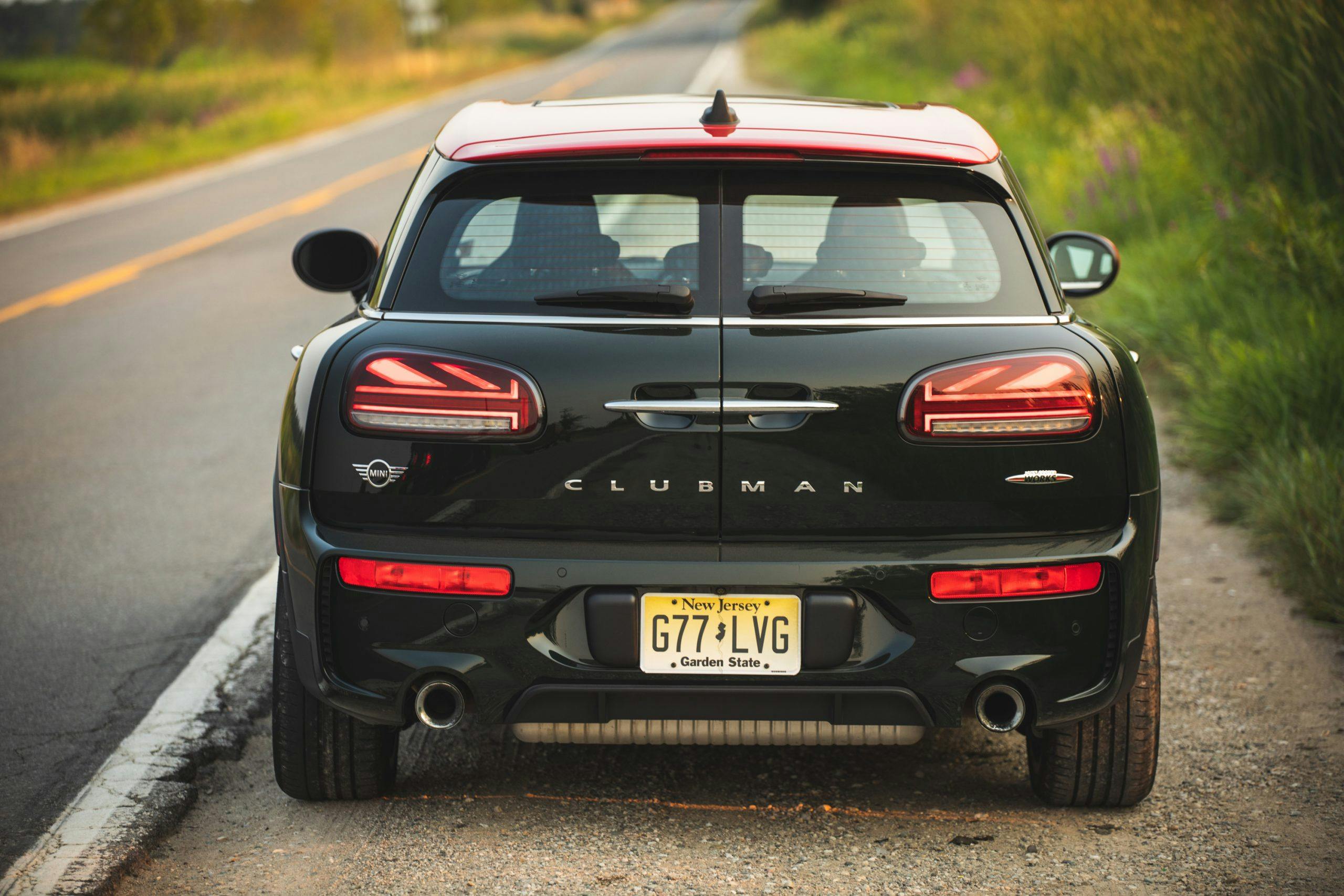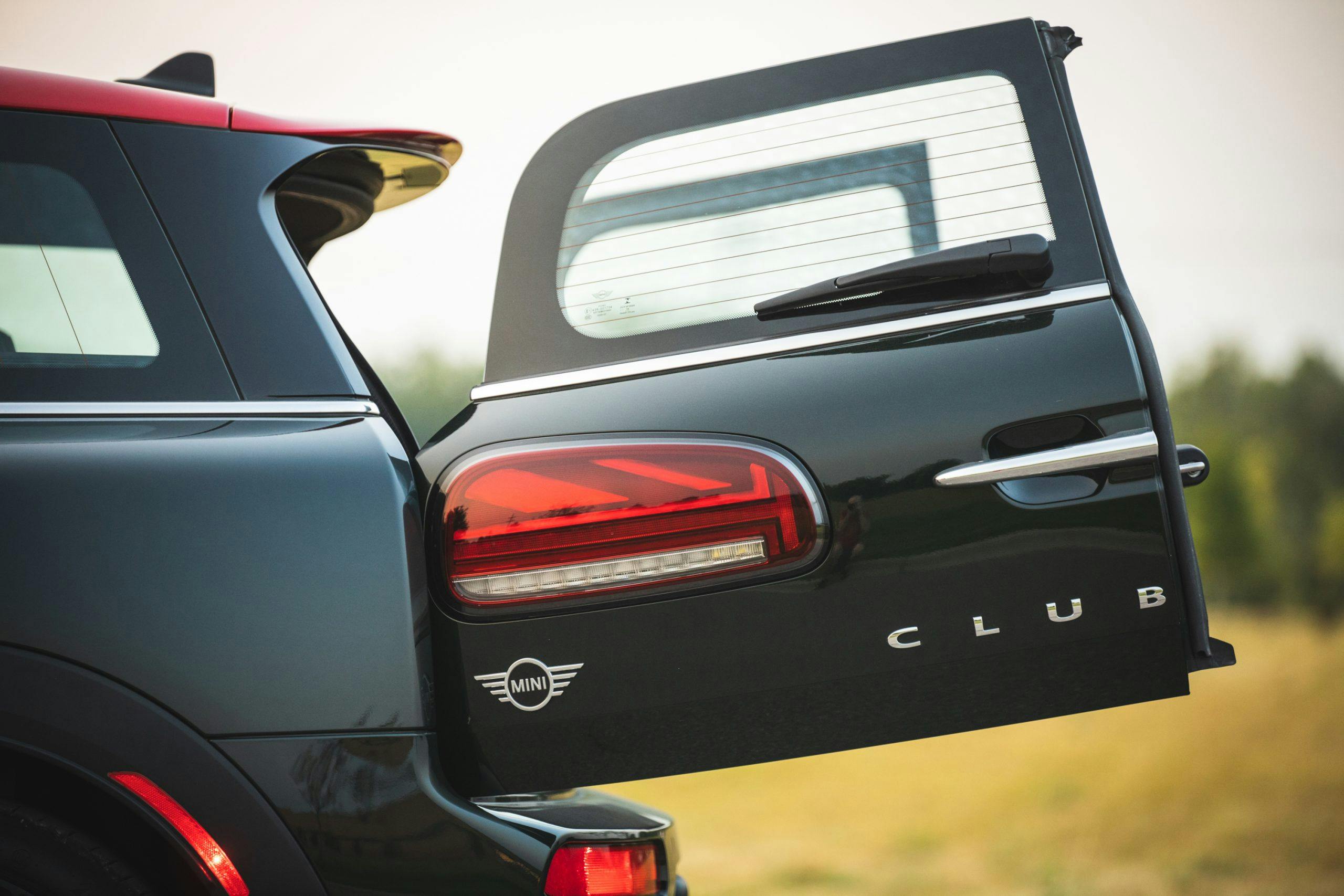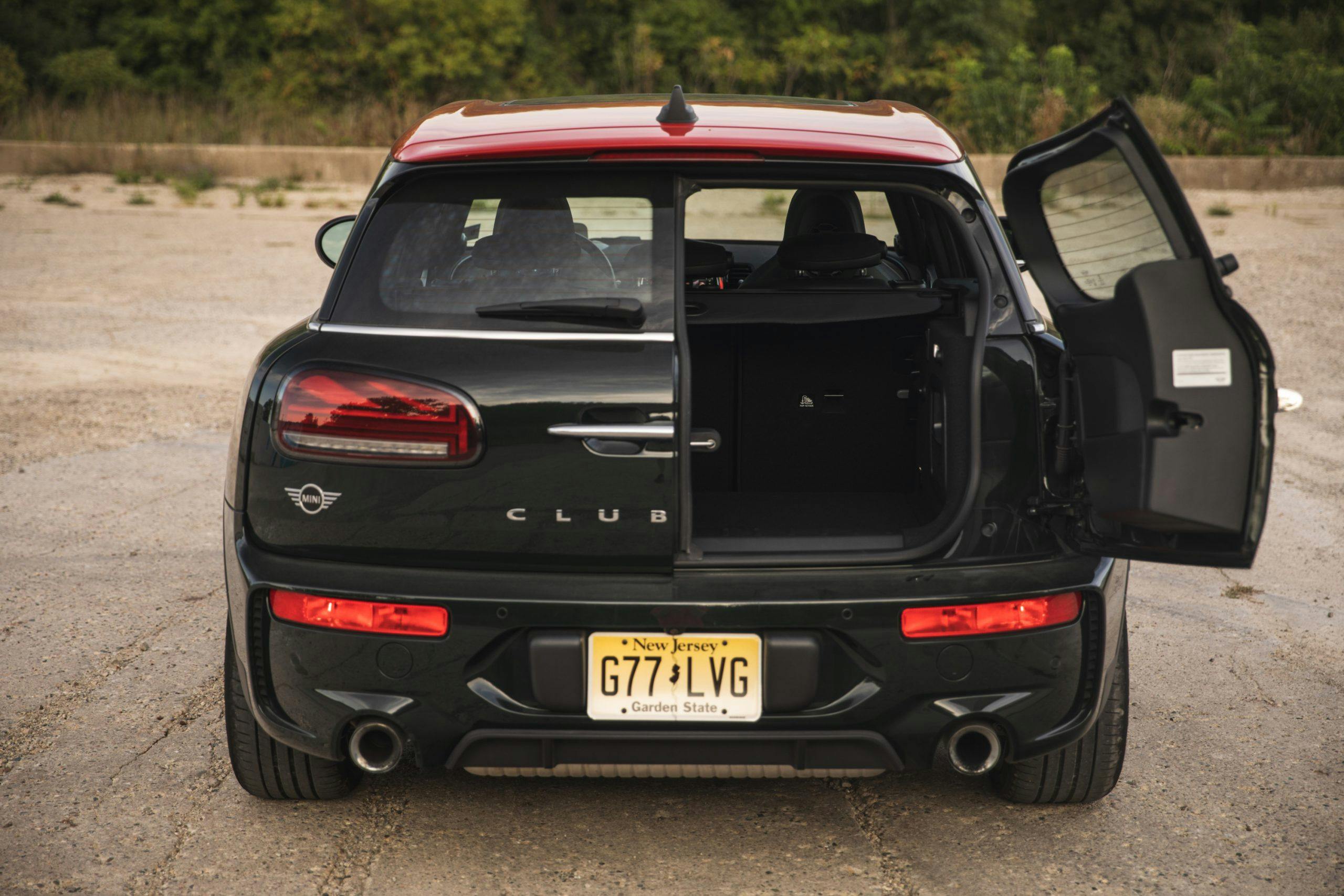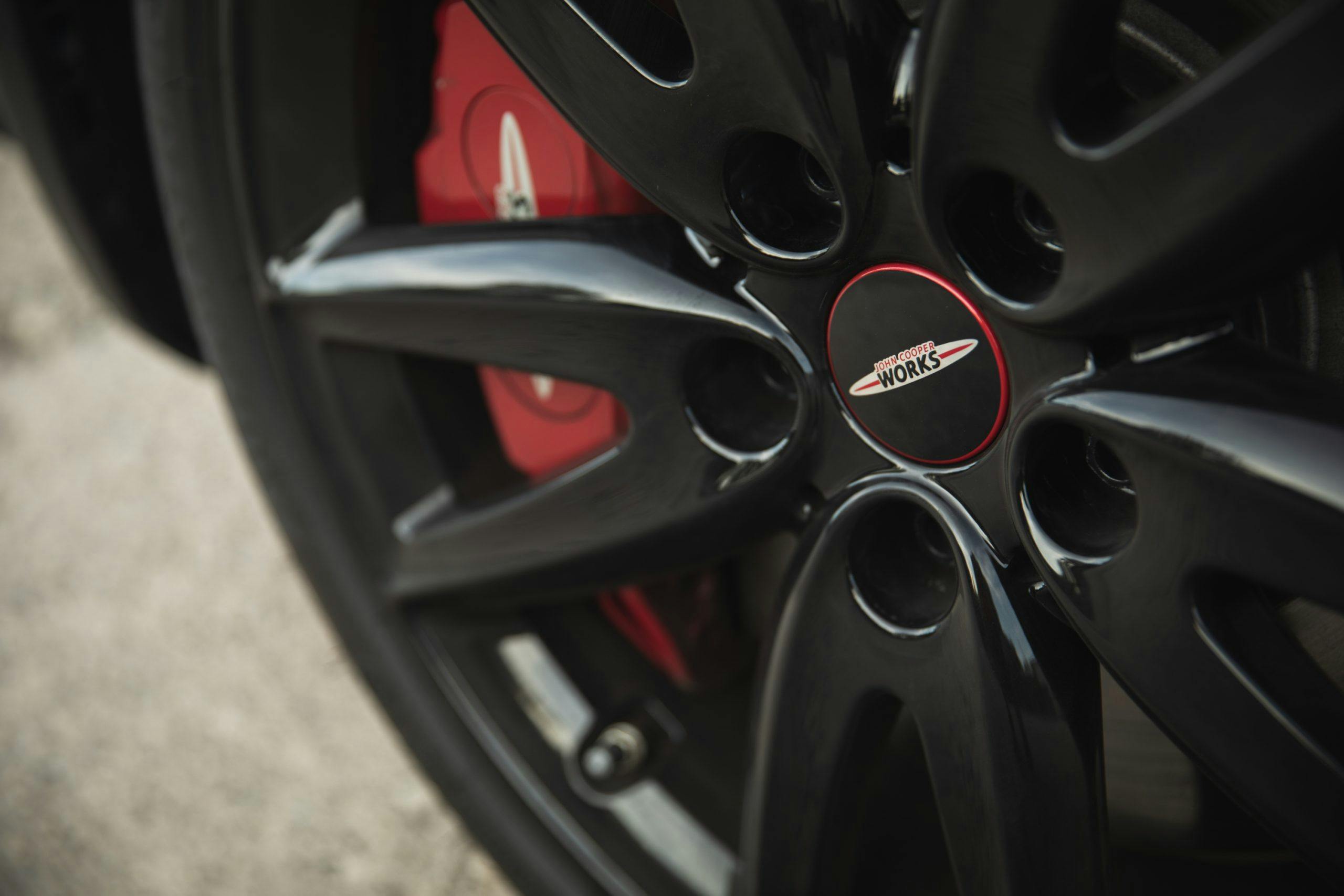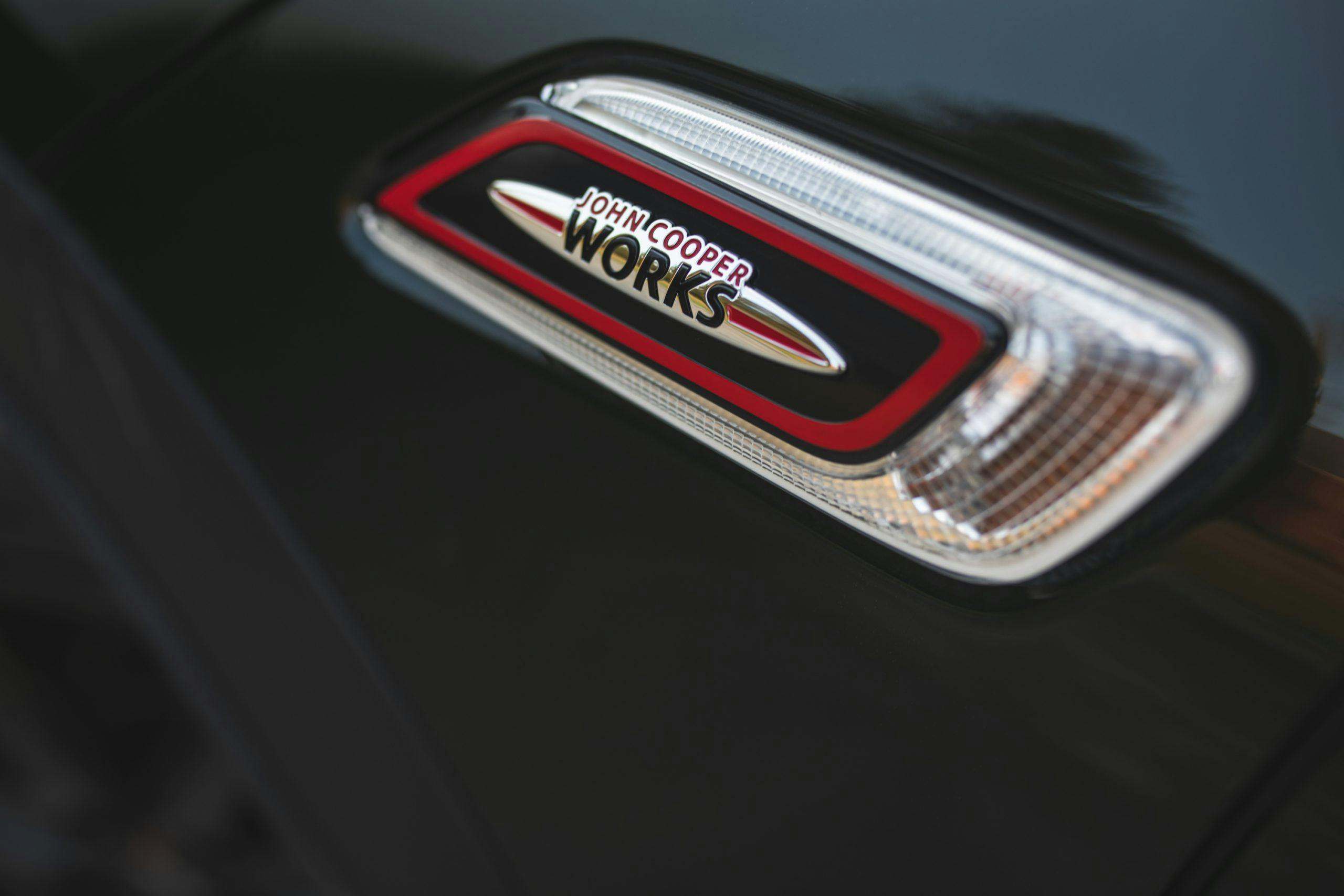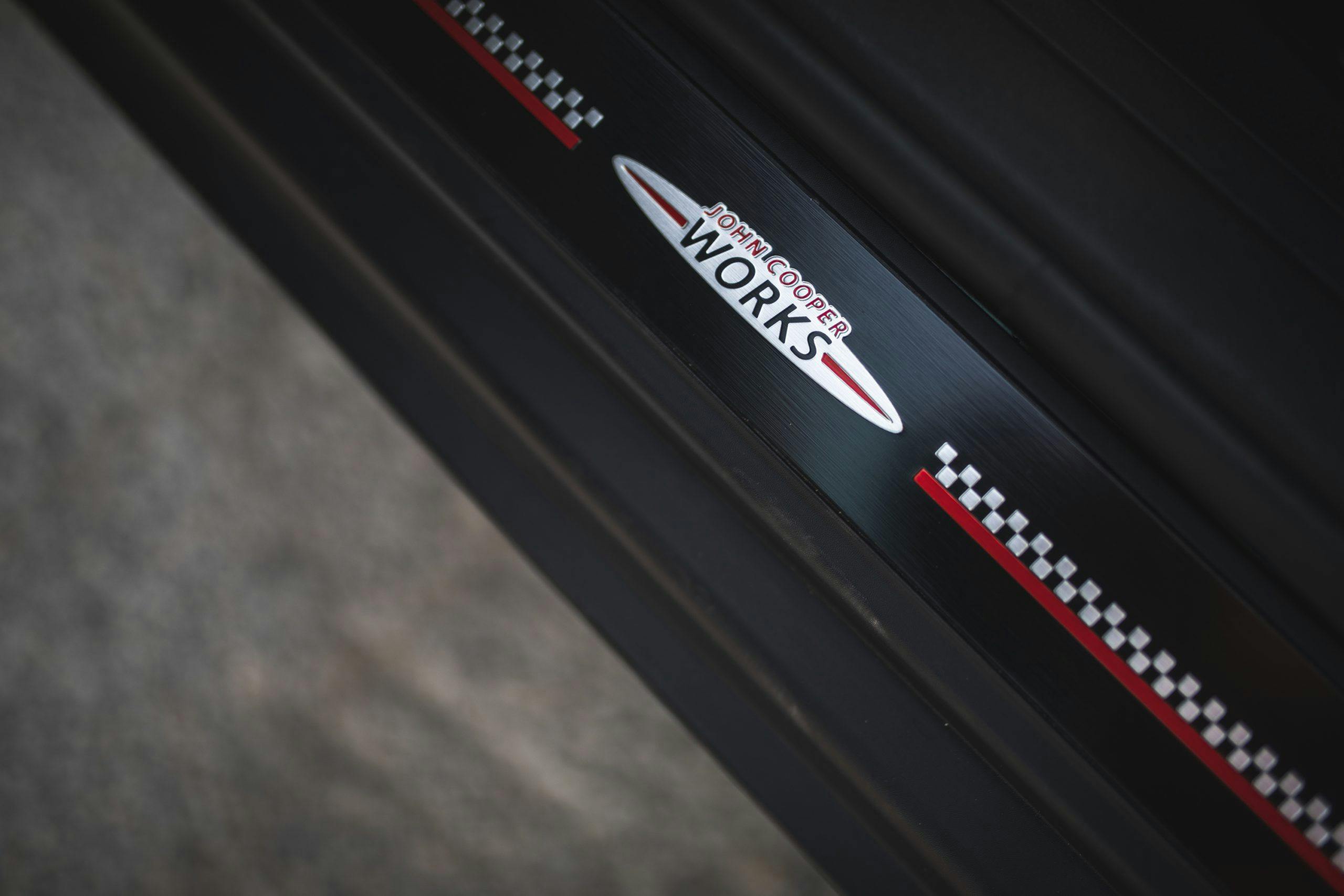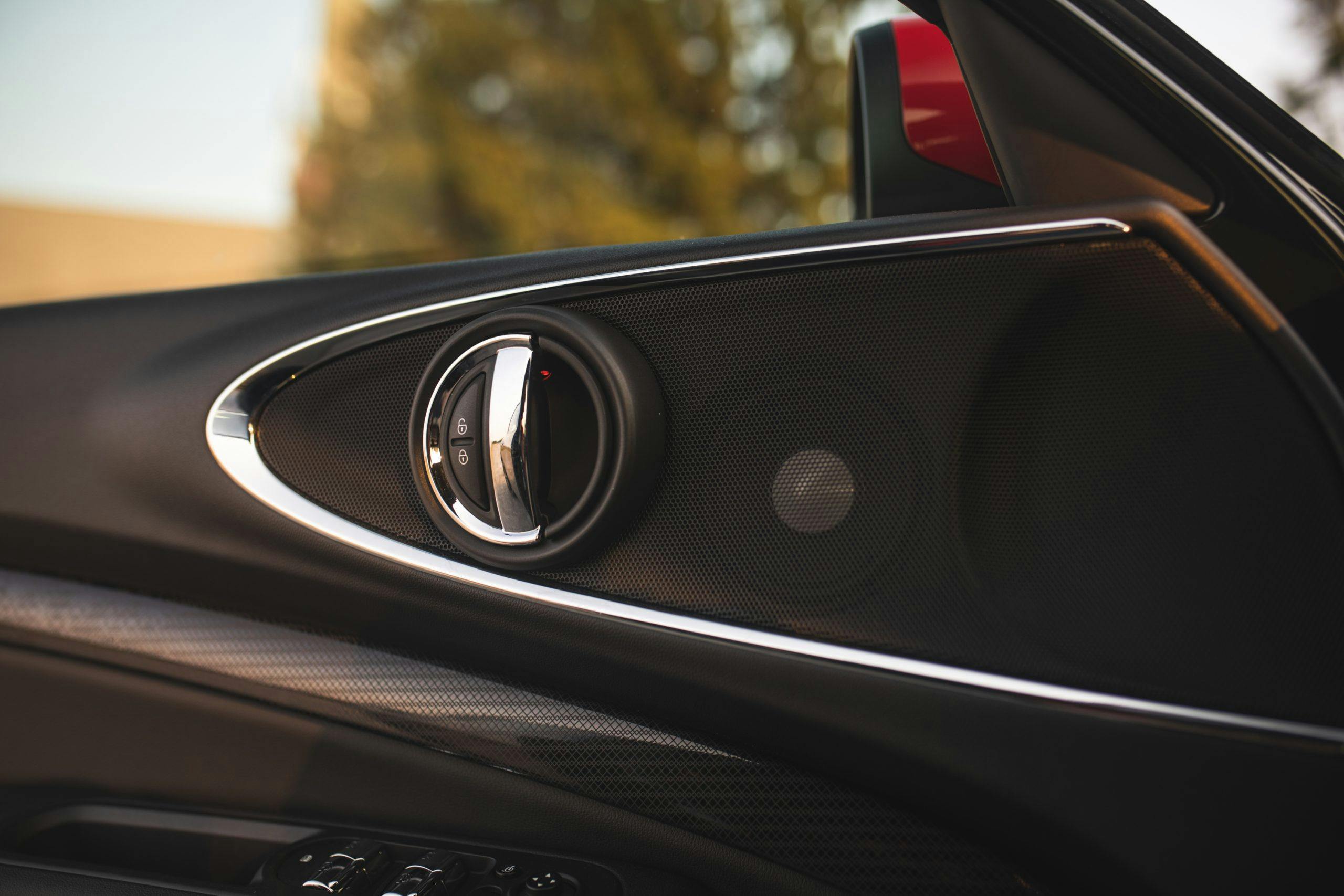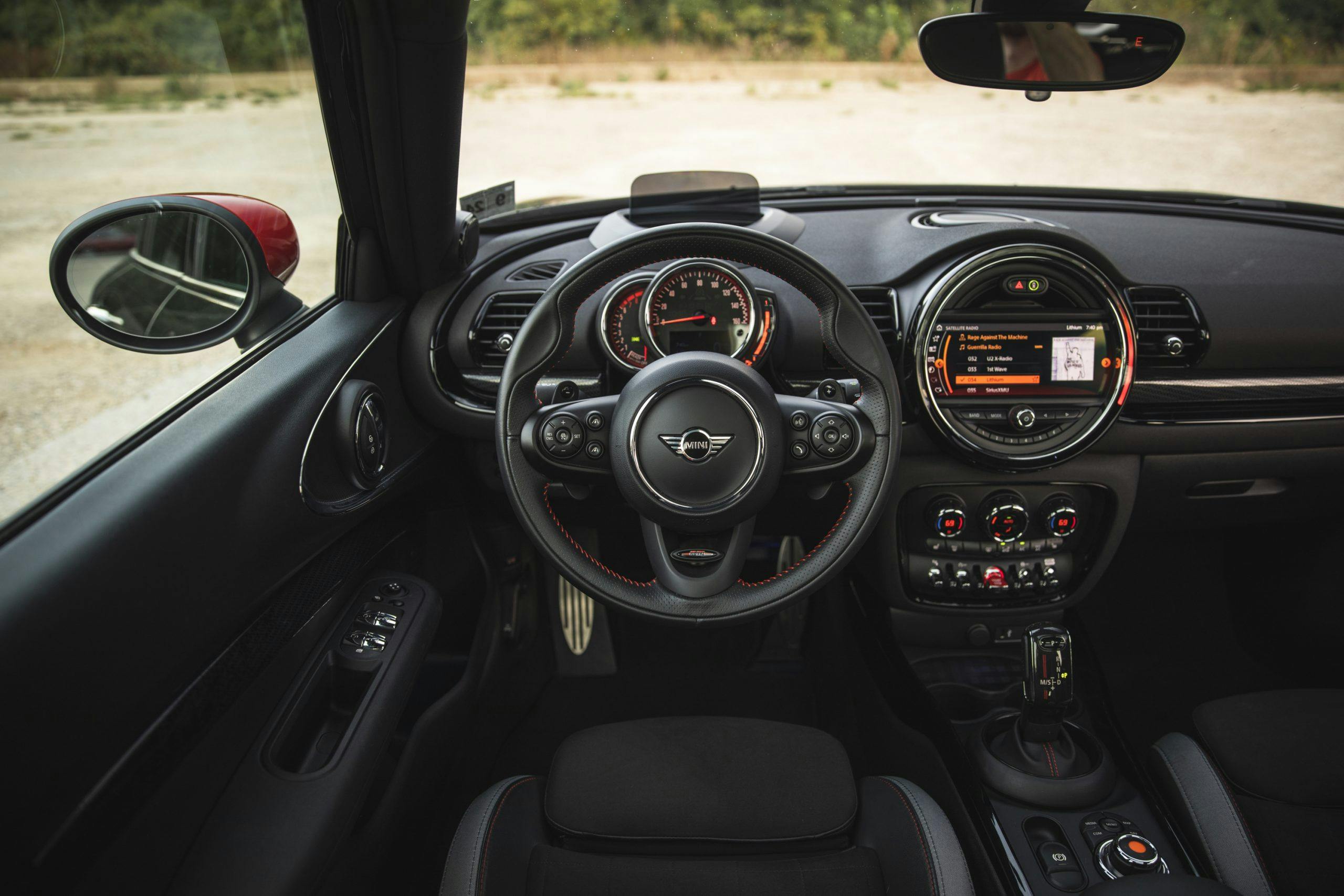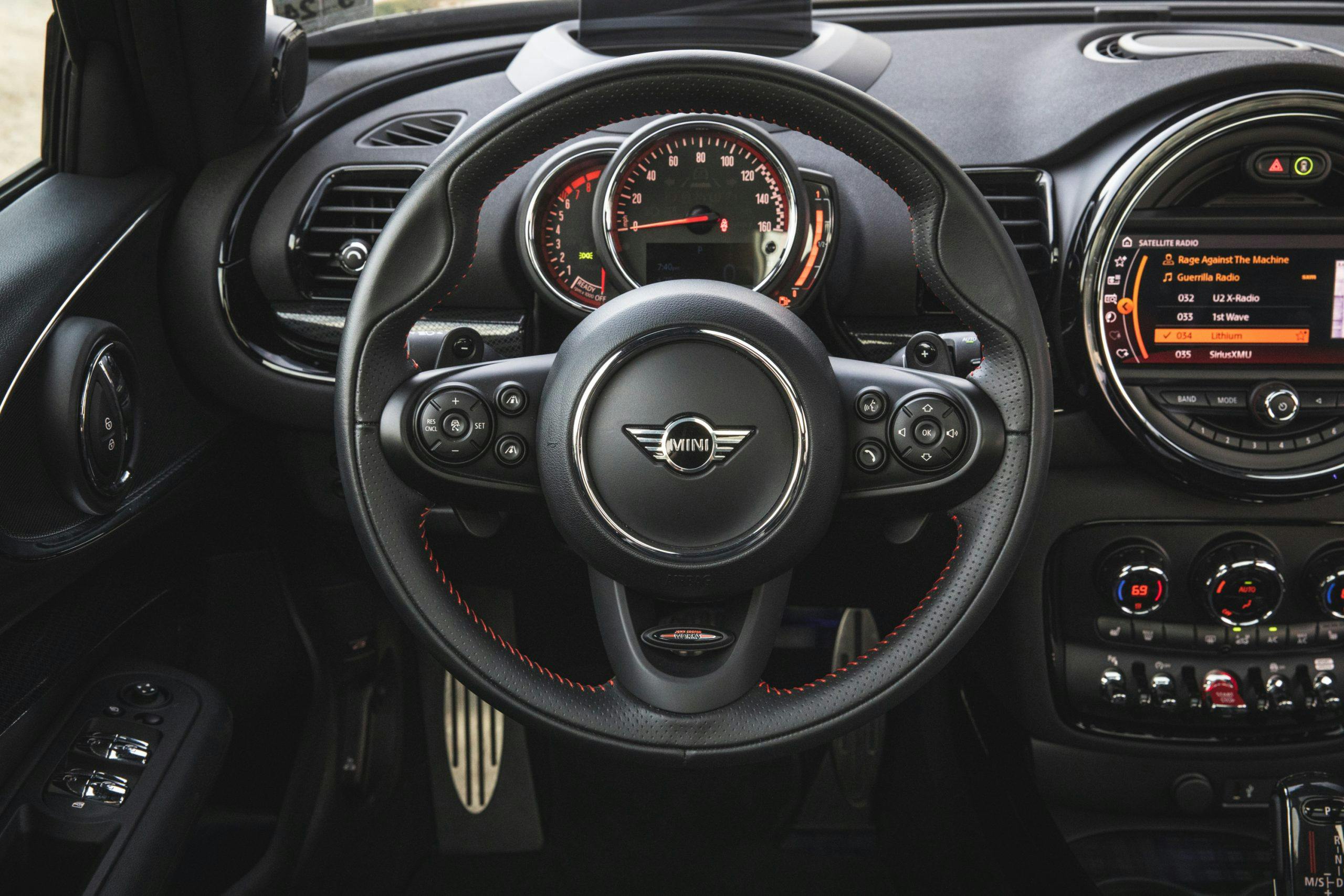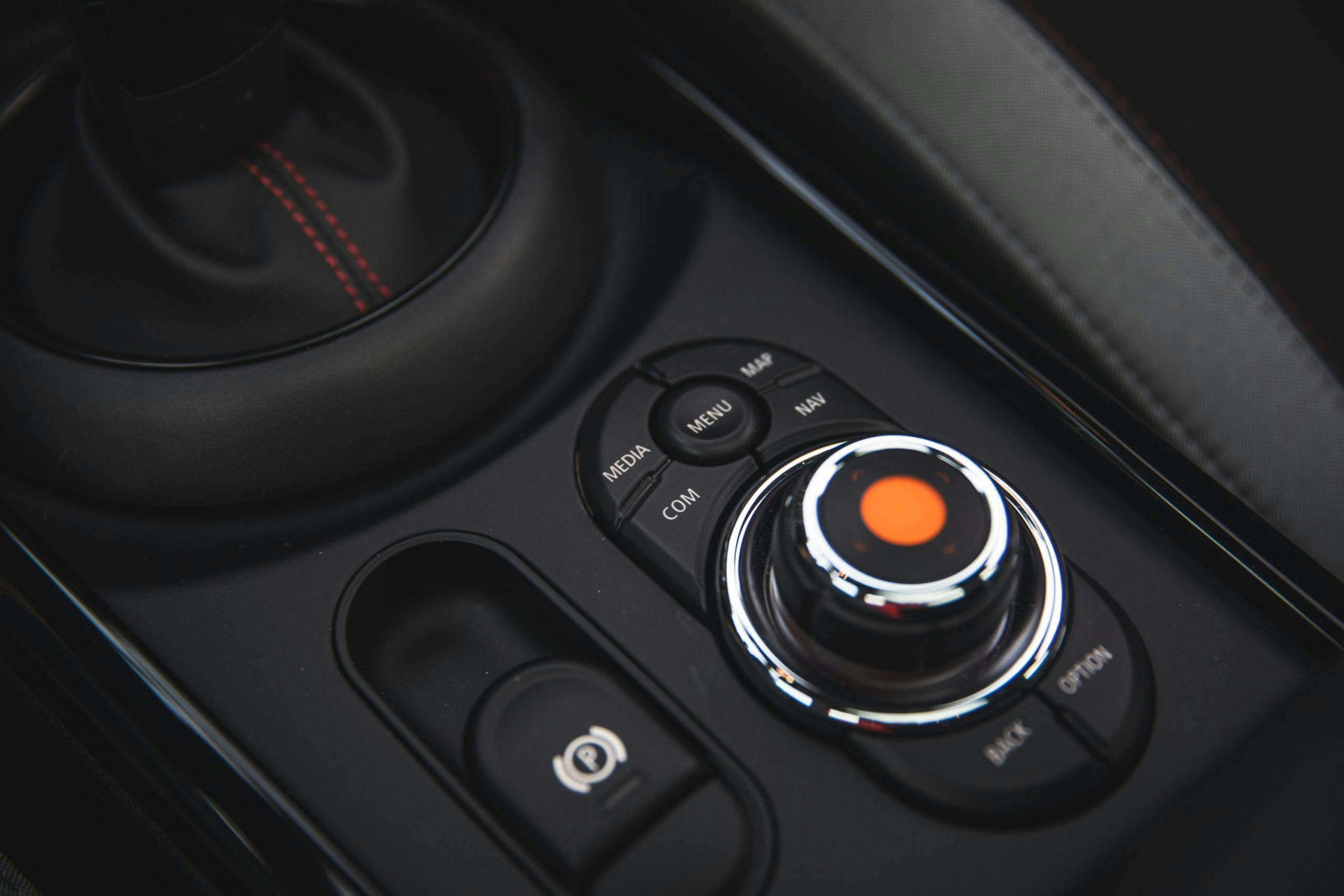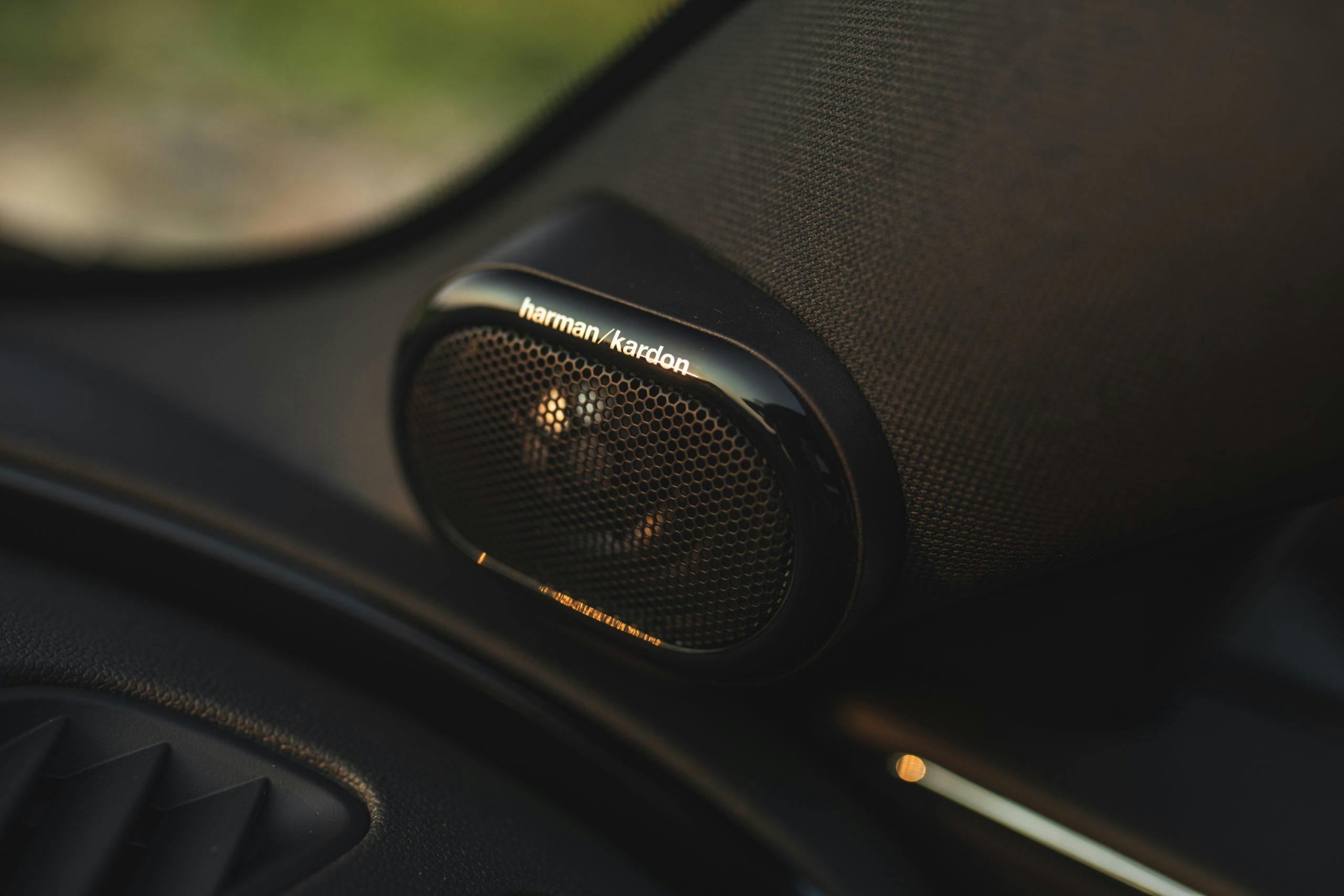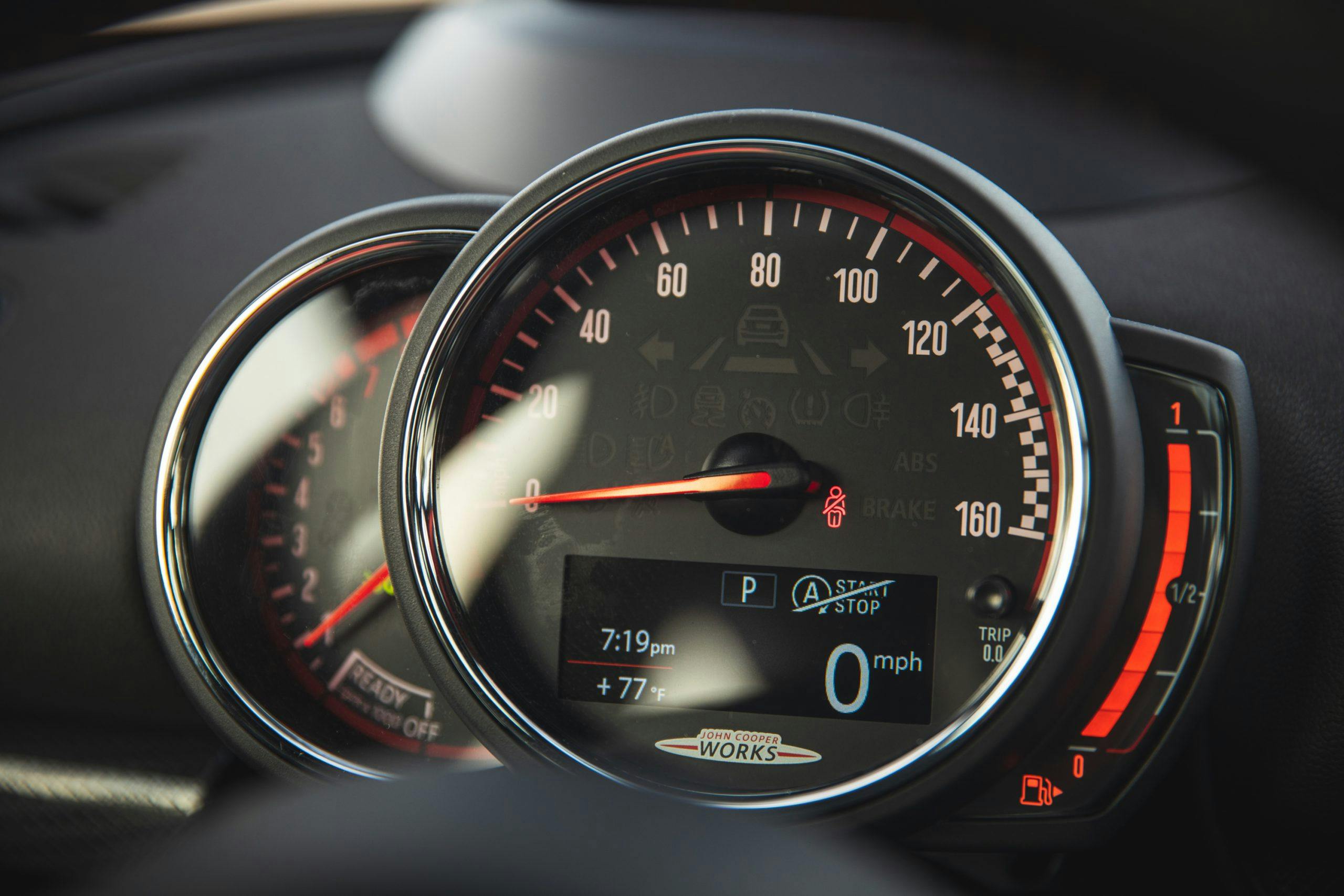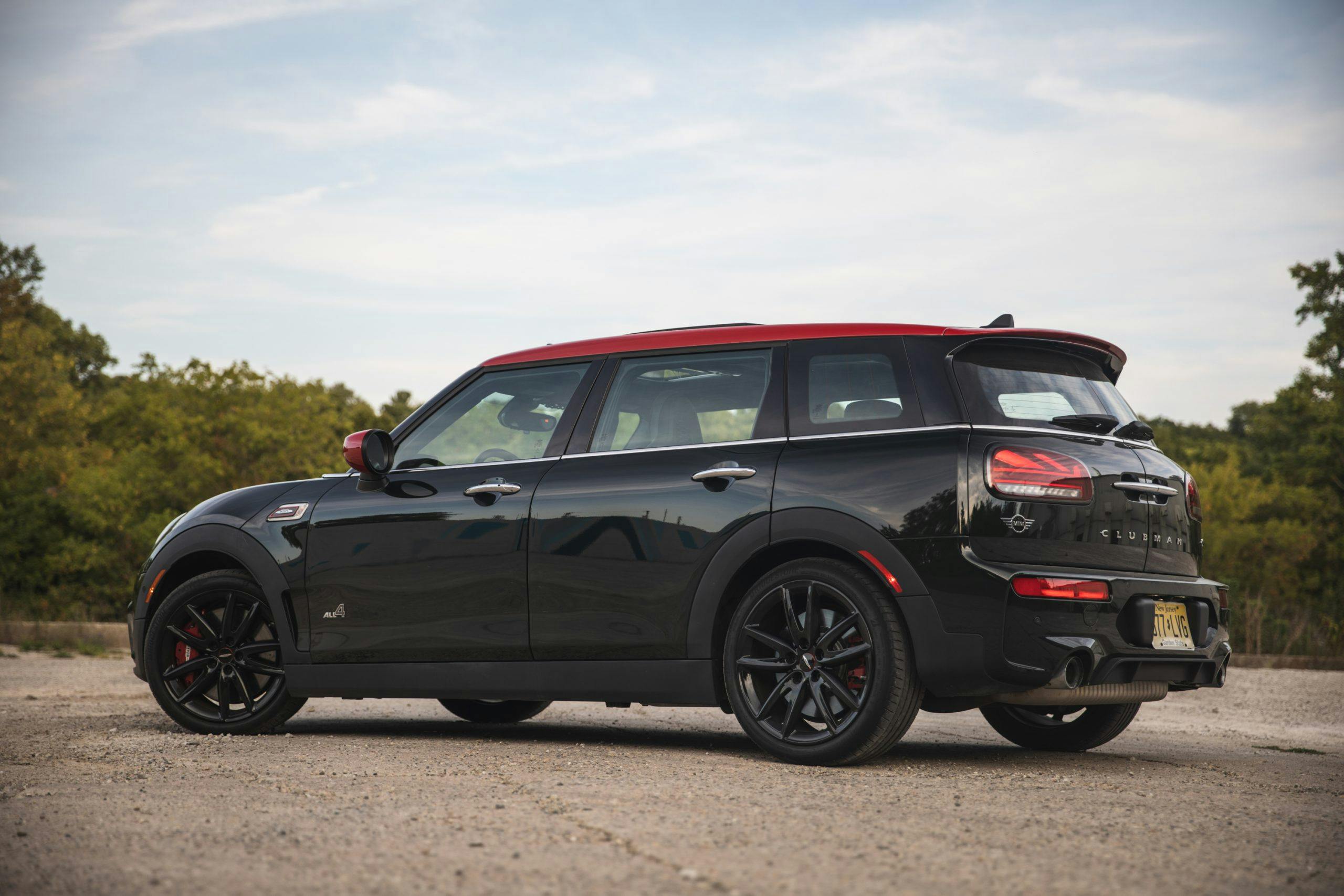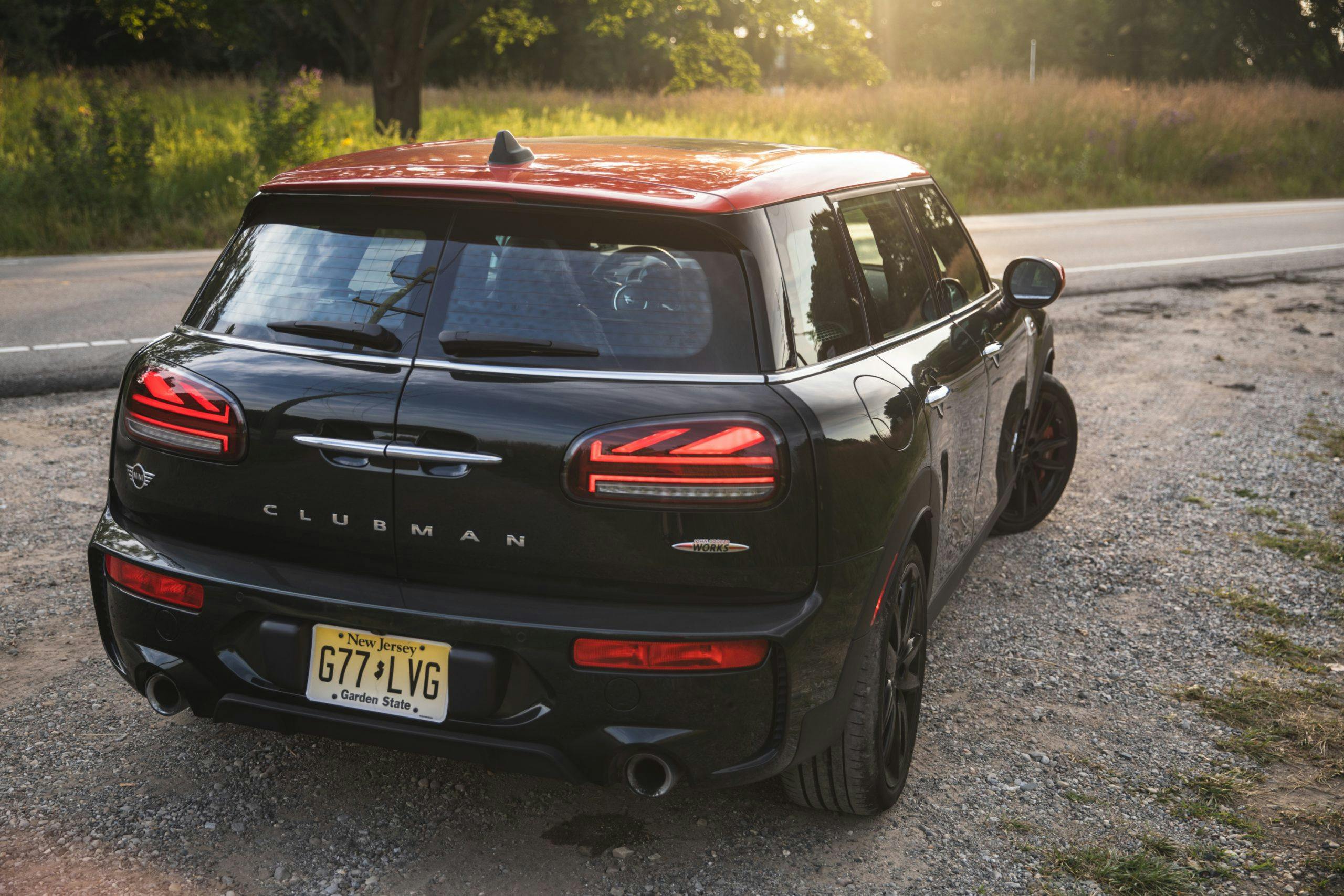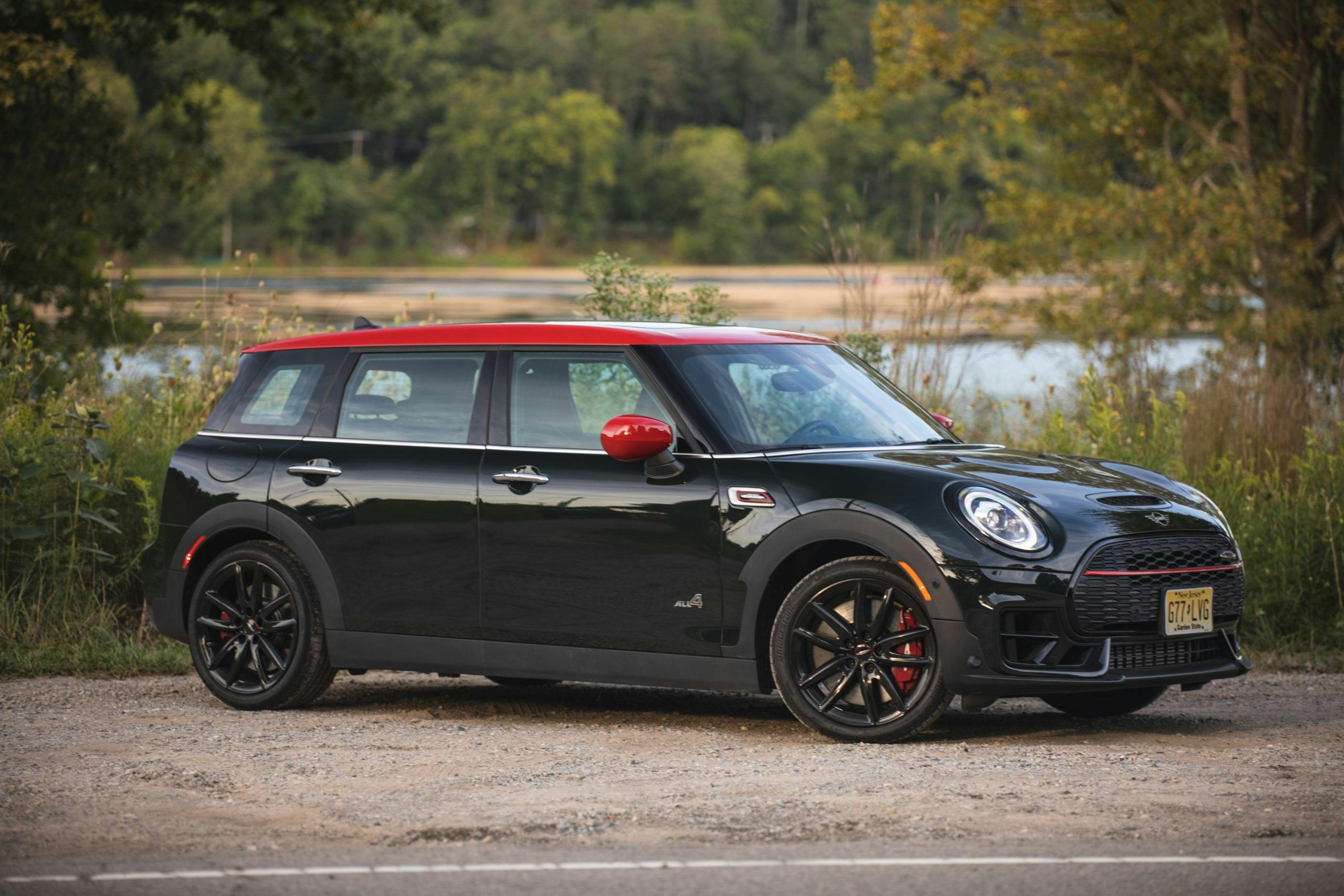Media | Articles
Review: 2020 Mini JCW Clubman All4
It’s hard out there for Mini. The brand has struggled in recent years to weather the market’s unstoppable shift away from cars—especially small cars—to crossovers. Mini’s only high-riding offering, the Countryman, has been around since 2010, but its best sales year in the U.S. was way back in 2014. We’re now two decades past BMW’s relaunch of the marque in 2000, and Mini is feeling more and more like an odd fit for the times. If there’s ever been car out on an island, it’s a John Cooper Works Clubman with 301 hp, all-wheel drive, and an automatic transmission. Oh, a $48,000 price tag, too.
Until the 2022 VW Golf R arrives, the JCW Clubman will be the only all-wheel-drive hot hatch on the market. (The Ford Focus RS bowed out after the 2018 model year, and Subaru last offered a WRX hatch in 2014.) JCW models have always been fairly hardcore with regard to suspension stiffness and, for 2020, Mini finally gave the four-door Clubman an appropriately raucous engine to go along with its All4 all-wheel-drive system.
The revised 2.0-liter turbo-four adds 73 hp and 73 lb-ft of torque (for a total of 331 lb-ft) thanks to extensive upgrades that include a reinforced crankshaft, new pistons, connecting rods, a bigger turbo, and a new sport exhaust. To compensate for all of that added grunt, Mini made extensive updates to the engine’s cooling system and slapped on no-nonsense four-piston fixed calipers on the rear wheels. Mini loves to say that its cars handle like go-karts, but this hot hatch rips more like a muscle car from launch, hitting 0–62 mph in 4.9 seconds on its way to electronically-limited top speed of 155 mph.
In usual Mini fashion, these thrills do not come cheap. The JCW Clubman starts at $40,250, including destination, but our fully-loaded test car’s price tag swelled to $48,100 with options. The top-tier Iconic trim accounts for $7000 of those upgrades, including adaptive dampers, a panoramic moonroof, head-up display, Harman Kardon sound system with satellite radio, navigation, wireless phone charging, and Apple CarPlay.
Baffling as it is for a car specifically targeting enthusiasts, an eight-speed automatic is the sole transmission for this vehicle. Mini, in fact, pulled all manual-equipped cars from the U.S. for 2020 as it sorted out emissions compliance issues; the six-speed stick is back for many other models including the Cooper S Hardtop, but even the limited-edition Works GP two-door hardtop—with the same 301-horse four-cylinder—comes exclusively with the eight-speed torque-converter auto.
Marketplace
Buy and sell classics with confidence
Like all Minis, BMW’s front-drive UKL platform provides the basic underpinnings. The Clubman is more or less a stretched version of the familiar two-door Cooper hardtop, plus a set of full-size rear doors and a gimmicky split tailgate. The design of these cars has always been a bit extra, as the kids say, and the JCW convincingly combines chunky, aggressive styling with big, friendly headlights and LED taillight signatures that shine into Union Jack logos. If the sedate Golf R is Piet Mondrian, the zany JCW is Joan Miró.
Once you lower yourself into it, the Clubman is equally full of personality inside. There’s nothing especially novel here, however, for those familiar with Mini products. The big central ring on the dash, with its multicolored effects, houses the touchscreen. Simple gauges attach to the back of the handsomely-stitched steering wheel, but the head-up display is so clear and easy to read that the physical gauges barely register from behind the wheel. Physical toggle switches abound on the lower section of the center stack, including a big red one for turning the car on and off. It’s hokey, but also kind of fun. It fits.
The front seats are suitably bolstered for track-day g forces, trimmed in a combination of leather and faux suede. You sit low enough that most drivers will have no headroom issues even with a helmet on, although at 5-foot-2, your Napoleonic author isn’t the best analyst of such metrics.
Finding a comfortable driving position is straightforward enough, but when a mid-grade Honda has power seats, manual adjustment in a car costing nearly fifty large smacks of a raw deal. Adults will fit in the back seat, provided the person sitting up front isn’t particularly tall, and with the seats folded there is more than enough cargo capacity for a camping trip or hardware store run. Particularly generous is the additional space underneath the trunk floor, which goes all the way to the bumper and would easily swallow a spare tool kit and then some. There’s even a thoughtful prop-up mount for the tray so it doesn’t whack you in the head as you’re rummaging around down there looking for a missing socket.
If there’s a weak spot, it’s the meager center console storage that dedicates much of its real estate to a wireless charger. To be fair, that’s a minor complaint given that the door pockets are more than sufficient for water bottles and other large items, and not having to deal with cumbersome phone cables feels like a luxury. If you’re an Apple user, wireless CarPlay is another big benefit—the standard Mini interface is neither especially intuitive nor easy to navigate.
The strength of the JCW is its engine. At highway speeds especially, even moderate pressure on the accelerator delivers a rush of urgent torque that can quickly land this hot hatch in the triple-digits. Despite all the ways BMW has changed in the last two decades, Munich still builds one hell of a motor. The four-cylinder delivers usable power all the way through the rev range, with maximum responsiveness and exhaust noise in Sport mode. Both the Eco and Mid modes make the car feel disappointingly inert, exacerbating the eight-speed automatic’s tendency to stumble in response to sudden inputs.
Steering response is sensitive almost to a fault, to the extent that the car will wander if the wheel isn’t pointed dead-ahead. Most impressive, however, is the balance between ride firmness and impact absorption; this is a stiff car, but the adaptive dampers communicate precious little harshness to passengers. The JCW handles with playful confidence, remaining flat through corners and smooth in its delivery of torque to the rear axle, when necessary.
Still, $48,000 is a lot of coin for any small car. Even for one this practical, quick, and entertaining. There really isn’t anything quite like the JCW Clubman All4 on the market, and for the remaining Mini diehards out there, an odd fit should feel just right.
2020 Mini JCW Clubman All4
Base price/as tested: ($40,250/$48,100)
Highs: Distinctive styling, cheeky charm, jewel of an engine.
Lows: Priced more than ten grand above competitors like the Civic Type R, fussy automatic-only transmission, dated infotainment.
Summary: A genuinely enjoyable hot hatch with power, personality, and poise. Worth the scratch for big-time Mini fans, but it’s hard to imagine the JCW’s quirks charming many others.

